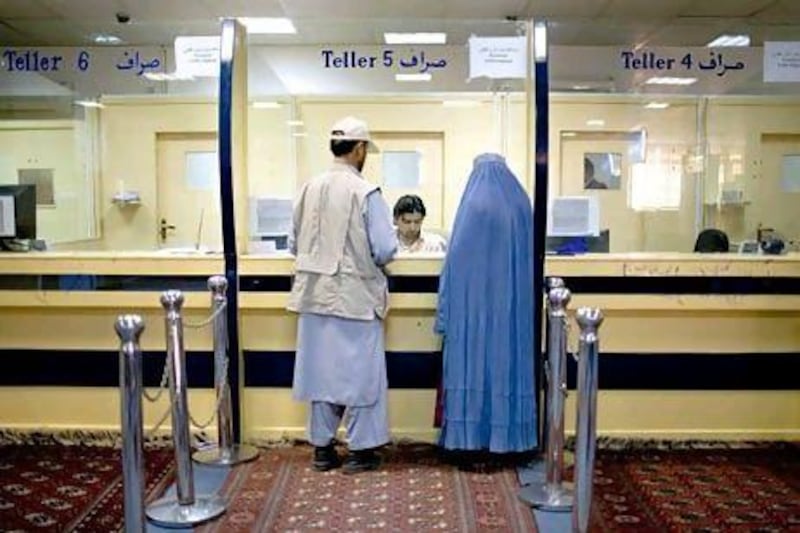Afghanistan's top bankers are considering plans to set up a financial centre to house its 17 banks and its first-ever stock market in a Dubai-inspired free zone.
"We are hoping to create a free zone-financial district, with the banks and the stock market all in the same facility," said Ahmad Bassam, a partner at Afghanistan Stock Exchange.
"It's a very ambitious plan, to create the equivalent of the DIFC [Dubai International Financial Centre]. It will be a symbolic building zone and will stand for the country."
The budget for the project is expected to be finalised by the last week of next month. Officials are already eyeing property developers in the Middle East and Turkey. Apart from banks and the bourse, the buildings will feature retail shops, food and beverage outlets, offices for accounting, advisory and legal firms, and brokerage companies.
The Afghanistan Stock Exchange will be designed by top architectural students in the country through a competition. A commission will select the top three drawings and let the public vote on what the exchange building should look like.
Mr Bassam's firm, Afghanistan Financial Services, has been awarded the stock market licence. The company's responsibility spans from everything such as establishing the operational side of the market, bringing companies and potential investors on board, and partners such as Nasdaq OMX to set up a trading platform.
Mr Bassam and his partner, Sanzar Kakar, both Afghans with years of investment banking experience with Morgan Stanley and Merrill Lynch, hope to get the stock market operational by 2014.
"Once the withdrawal of American troops happens, we will need to move from a donor economy to a free market economy," said Mr Bassam . "There are a lot of challenges, from operational, human capital to security."
But security remains the biggest challenge, said Noorullah Delawari, the governor of Afghanistan's central bank.
Afghanistan, continued on b2
Standard Chartered suspended its operations in the country earlier this year, citing security concerns.
The creation of a stock market should offer opportunities for people to invest in public companies, and for companies to raise money for their operations, and for the government to set up sovereign debt issues, said the governor.
Afghanistan plans to sell Islamic bonds in preparation for a possible decline in western financial aid as American officials draw down their forces.
"We will need a vehicle to trade the sukuk," said Mr Delawari. "The purpose of the sukuk will be to finance certain government project through the creation of national debt and the sales of bonds."
The central bank and the ministry of commerce are working to develop rules, regulations and the creation of the commission and exchange.
There are 80 companies that are currently ready to go public.
"For us it's a matter of which sectors have matured," said Mr Bassam.
Lucrative industries, such as telecom, banking, construction and aviation have developed dramatically in recent years, said Mr Bassam. "There's huge potential for growth."
"The mining sector needs to tap equity capital markets to explore. In the aviation sector, there are eight flights operating to Dubai, and almost weekly, flights are at 80 per cent capacity, almost full. These airlines have been expanding to Turkey, Abu Dhabi, India."
The stock market will also have to offer an exit strategy for industrial and manufacturing state enterprises dating to the Soviet-backed regime, which were severely neglected after the Taliban took Kabul in 1996.
"In the postwar post-construction, everything was centralised. We have a lot of enterprises controlled by the government that were supposed to privatise in 10 years," said Mr Bassam. "However, they didn't have an exit point. But now the stock exchange will offer a window for them."





